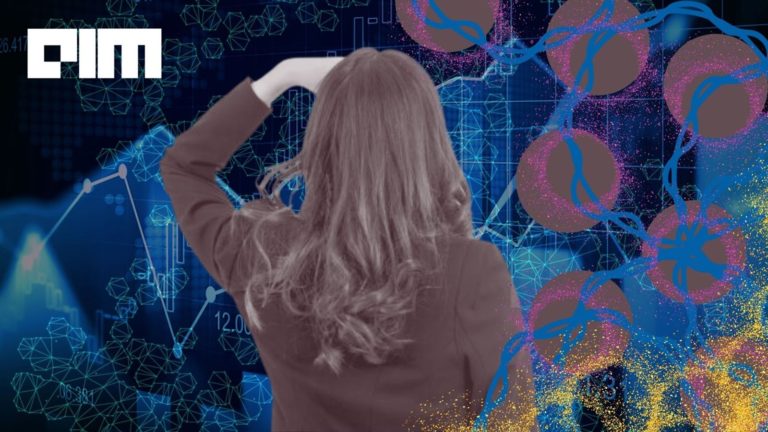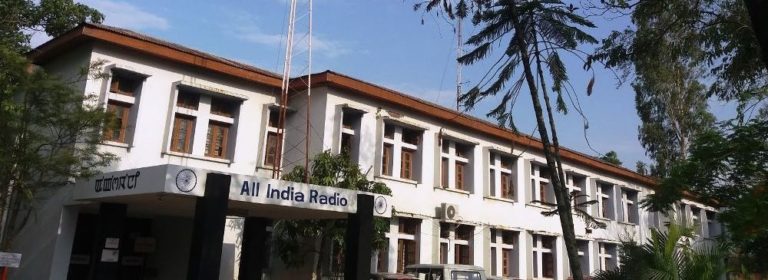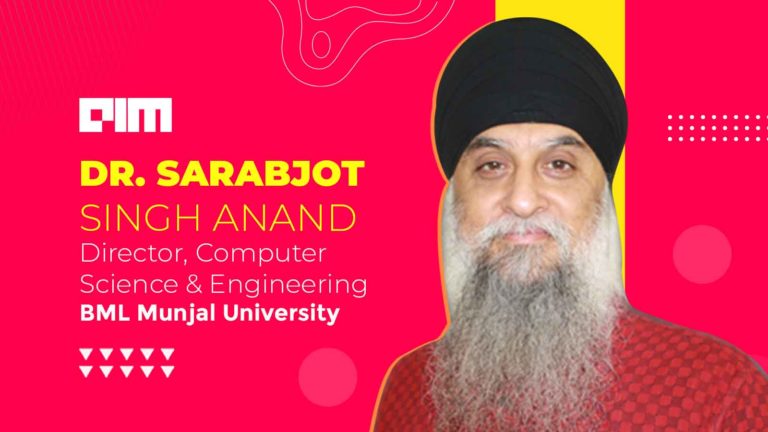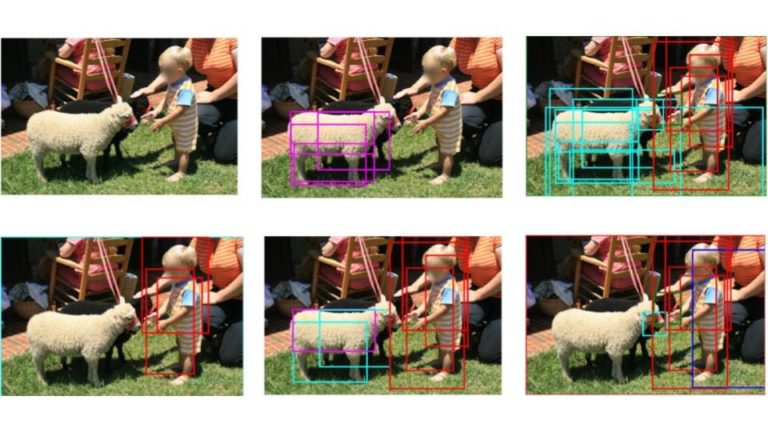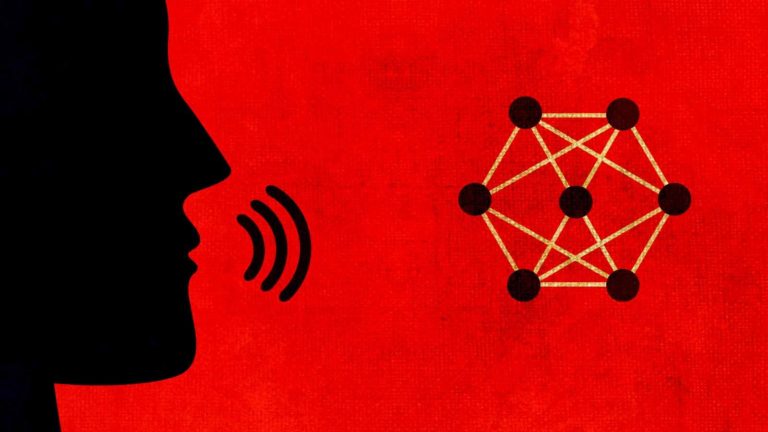The coronavirus has unleashed a medical, social and economic crisis of unimaginable intensity. And in response, the world is discovering a state of new normal. Prime Minister Narendra Modi has highlighted how the COVID-19 pandemic has resulted in an ever-increasing adoption of technology at a scale unknown till recently.
Where does Artificial Intelligence (AI) feature in this new normal?
In the medical world, AI has been applied to COVID-19 in four areas: diagnosis, public health, clinical decision-making, and therapeutics. Businesses in India are leveraging emerging technologies including AI with the intent of maintaining continuity of their operations and customer service. A recent study suggests that the highest increase in the use of AI in these times has been witnessed in India.
I anchored a study (Survey was conducted in Nov-Dec 2020, by the IIT Madras Alumni Association in collaboration with the Office of the Principal Scientific Adviser to the Government of India, and had 1564 respondents) to understand the perceptions of the public in India about the new normal, science and technology, and in particular Artificial Intelligence.
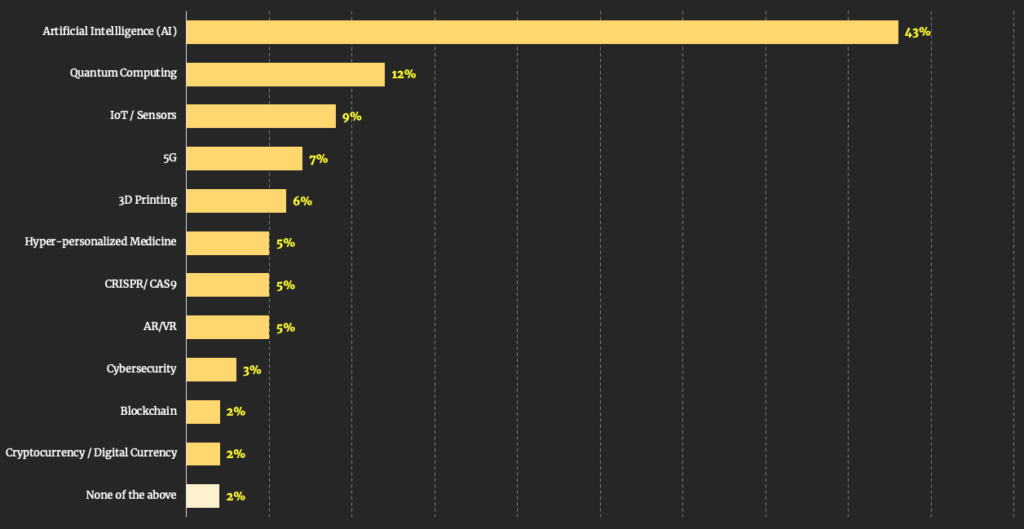
Public attitude on Artificial Intelligence
The topmost ‘emerging technology’ that the public recalled is Artificial Intelligence. 43% of them pick AI, which is as much as the numbers for the next six emerging technologies put together. In India, we see policymakers and organizations like MeitY, NITI Aayog, NASSCOM and others place emphasis on AI.
When asked about the top technology priorities for India, the public identified Information Technology including AI, agriculture technology and environmental technology (technology for energy, water, air etc.) as the top three priorities. We are beginning to see several promising startups in India focused on such priorities.
On AI Applications
As Fig 2 suggests, the public is comfortable when it comes to the usage of AI in applications like manufacturing that included automation and robots in factories and language translation.
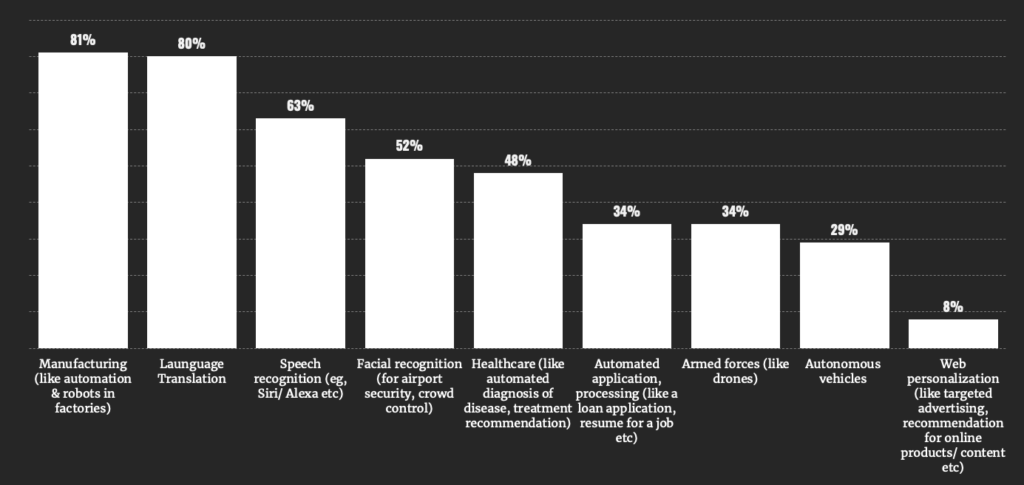
(Net score is positive responses minus negative responses)
Interestingly, the younger respondents (age groups less than 40) are the least comfortable with the usage of AI in facial recognition and armed forces, while they are the most comfortable with the usage of AI in automated application processing and autonomous vehicles.
On sharing data
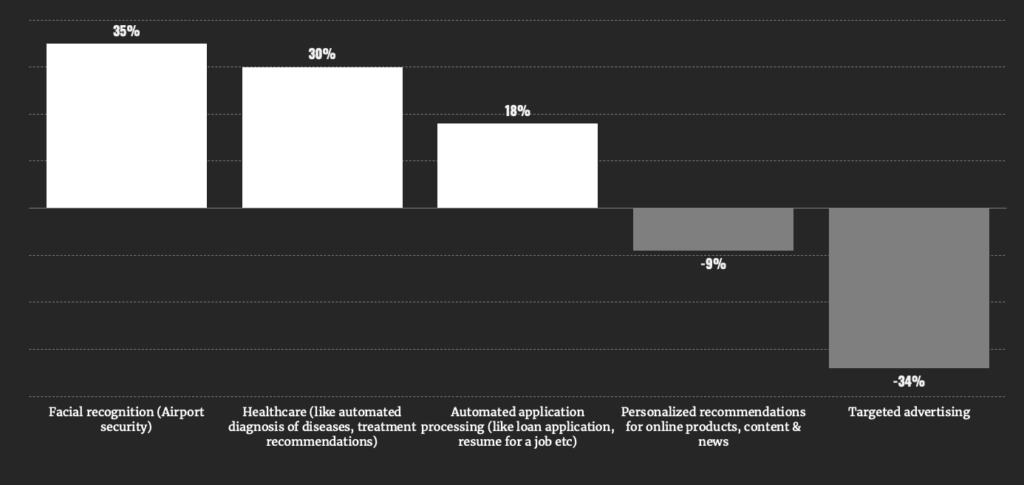
The public is not comfortable in sharing data for AI applications like targeted advertising and personalised recommendations, and moderately comfortable for applications like facial recognition and healthcare.
Interestingly, for the same AI application like healthcare, facial recognition and automated application processing, respondents are roughly 1.5 times less comfortable when asked if they will share personal data for the AI application as compared to their comfort level with the AI application category itself. Policymakers should consider this dichotomy as they develop strategies for creating national-level data repositories that will benefit AI research and applications.
On AI and humanity
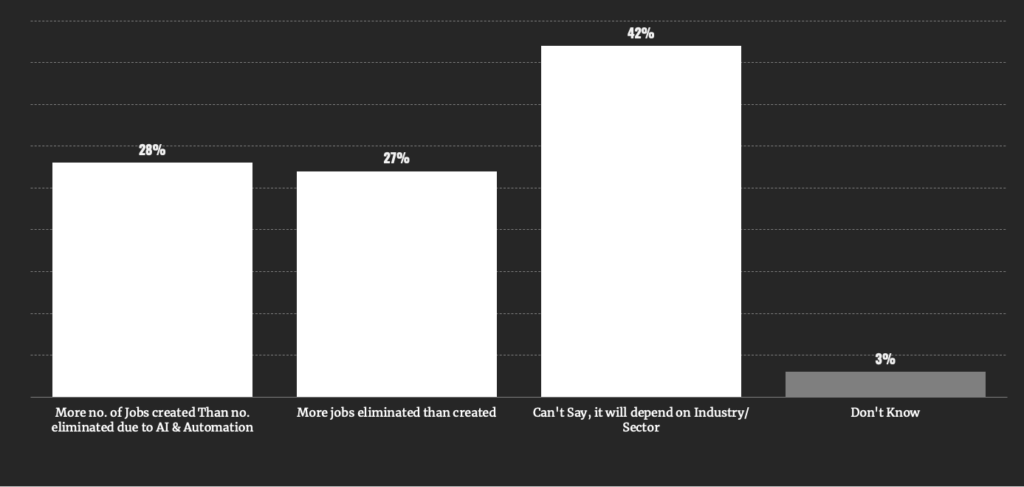
There have been several discussions in the society about AI posing a threat to humanity and our way of living and working. In our study, 42% of the public believe that the impact of AI on net new jobs created will depend on the industry, and on balance feel that, overall, more new jobs will be created than lost (Net score 1%).
63% of the public feel that humans will always be more intelligent that AI systems. One puzzling trend that emerges in the study is about how the youngsters perceive AI. Those in age category less than 40 (Net score -8%) are relatively less optimistic that net new jobs will be created as compared to those aged greater than 40 (Net score 14%). Further, respondents aged less than 40 are 3 times less confident than those aged more than 40 that human intelligence will not be overtaken by AI. What explains this apparent diffidence among the youth? Or I wonder if they are being more prescient than the others about reaching singularity! I believe there is a need for appropriate education and communication strategies for the youth in India about AI and its positive potential.
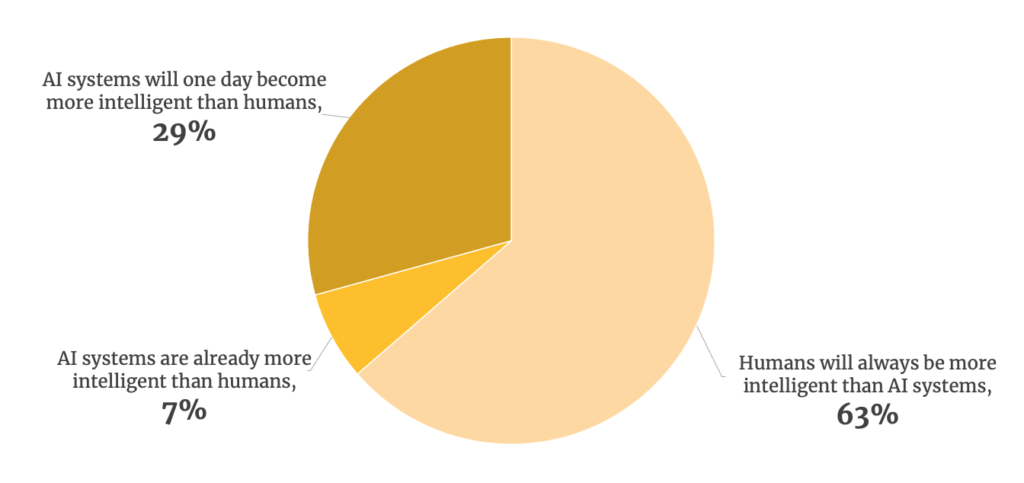
Conclusion
The public in India demonstrate a sense of optimism about the future in the new normal and believe in science and technology to make their lives better. Artificial Intelligence is top of the mind recall among emerging technologies. The public in India identifies several applications like AI in manufacturing and language translation with which they are comfortable. A majority of the public in India believes that human will always be more intelligent than AI systems. A recent global study finds that 67% of Indians say that the development of AI has mostly been a good thing for society.
Let us end 2020 on that note of optimism. And wish 2021 brings health and more benefits of AI to all.







